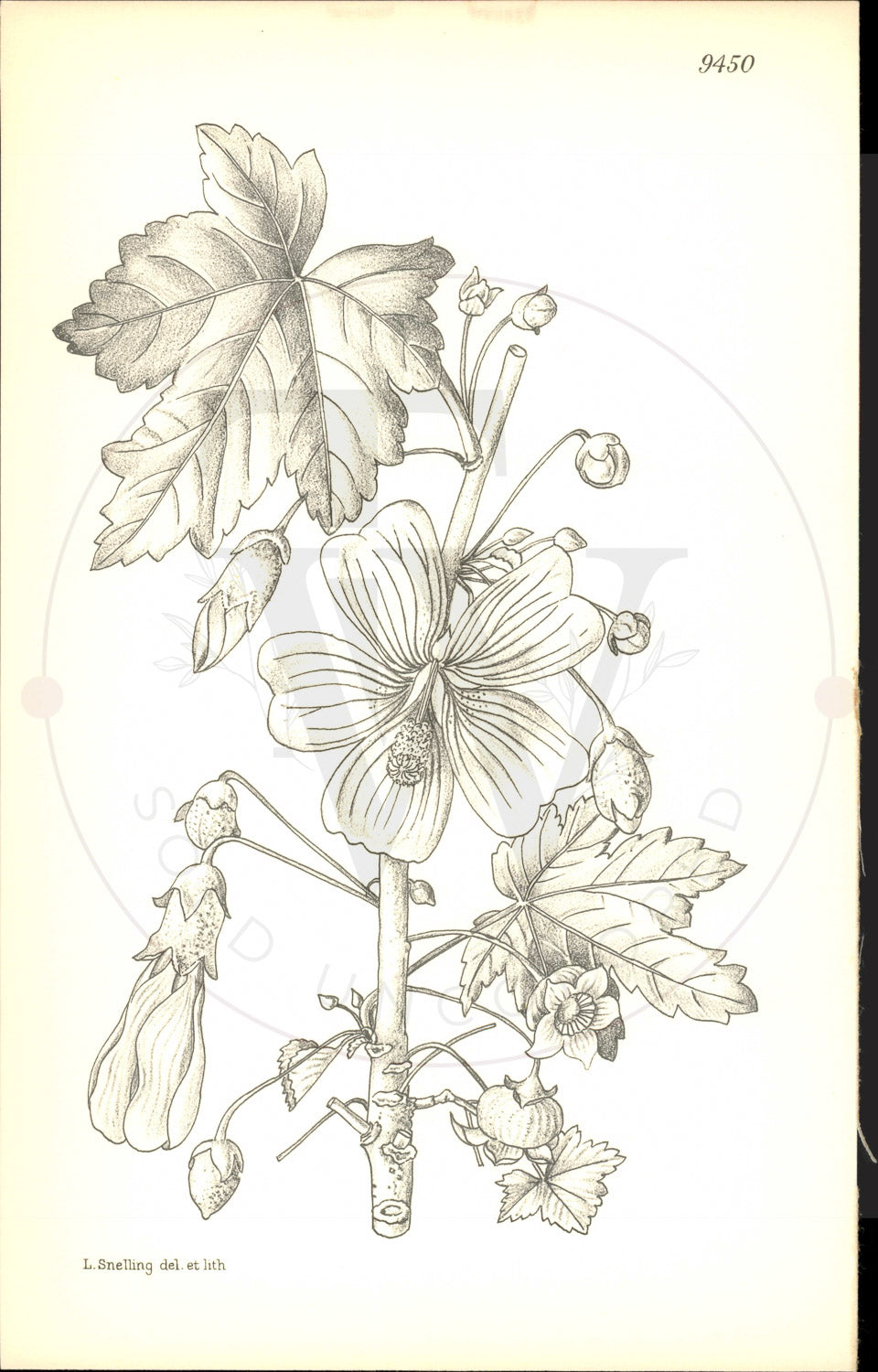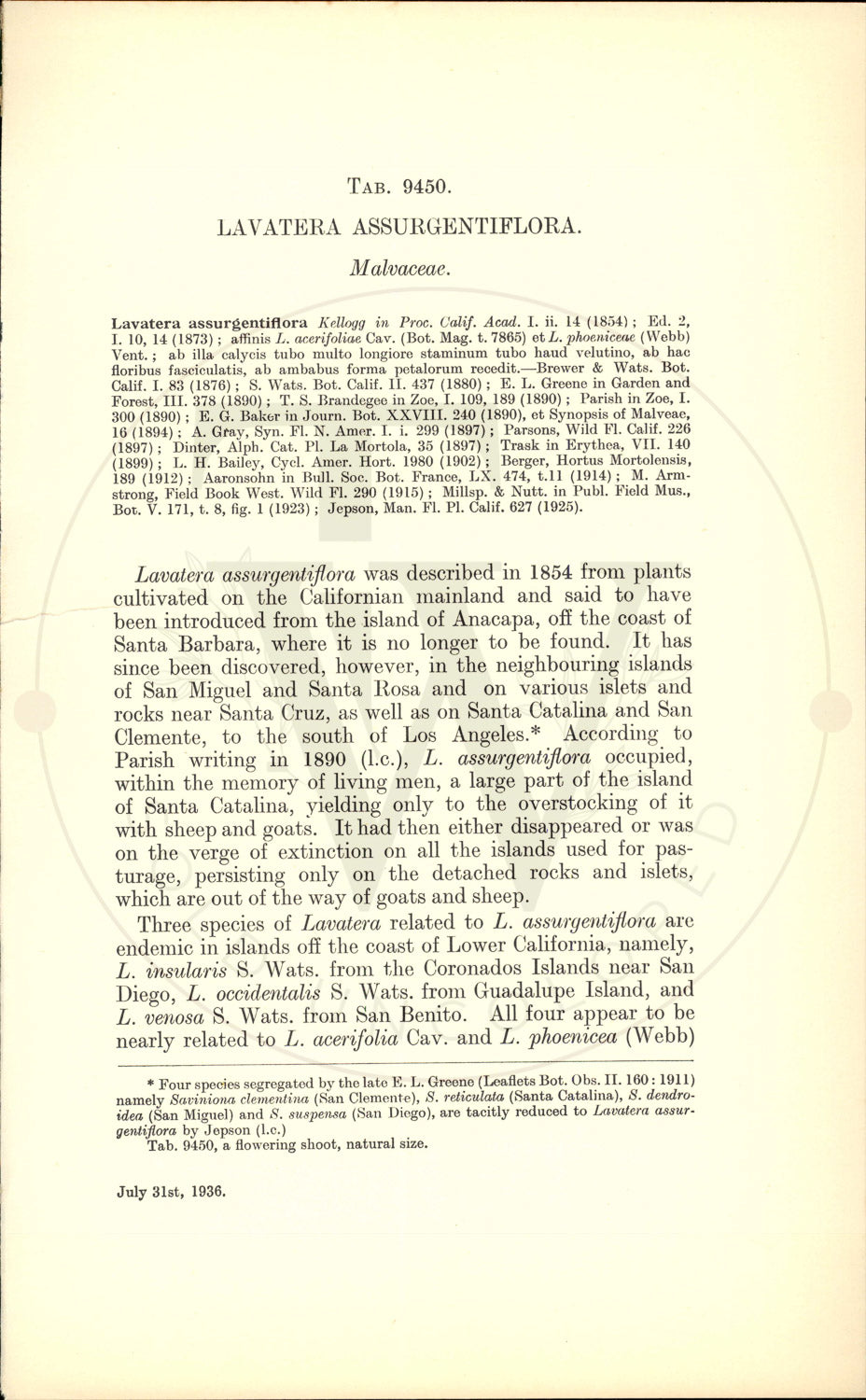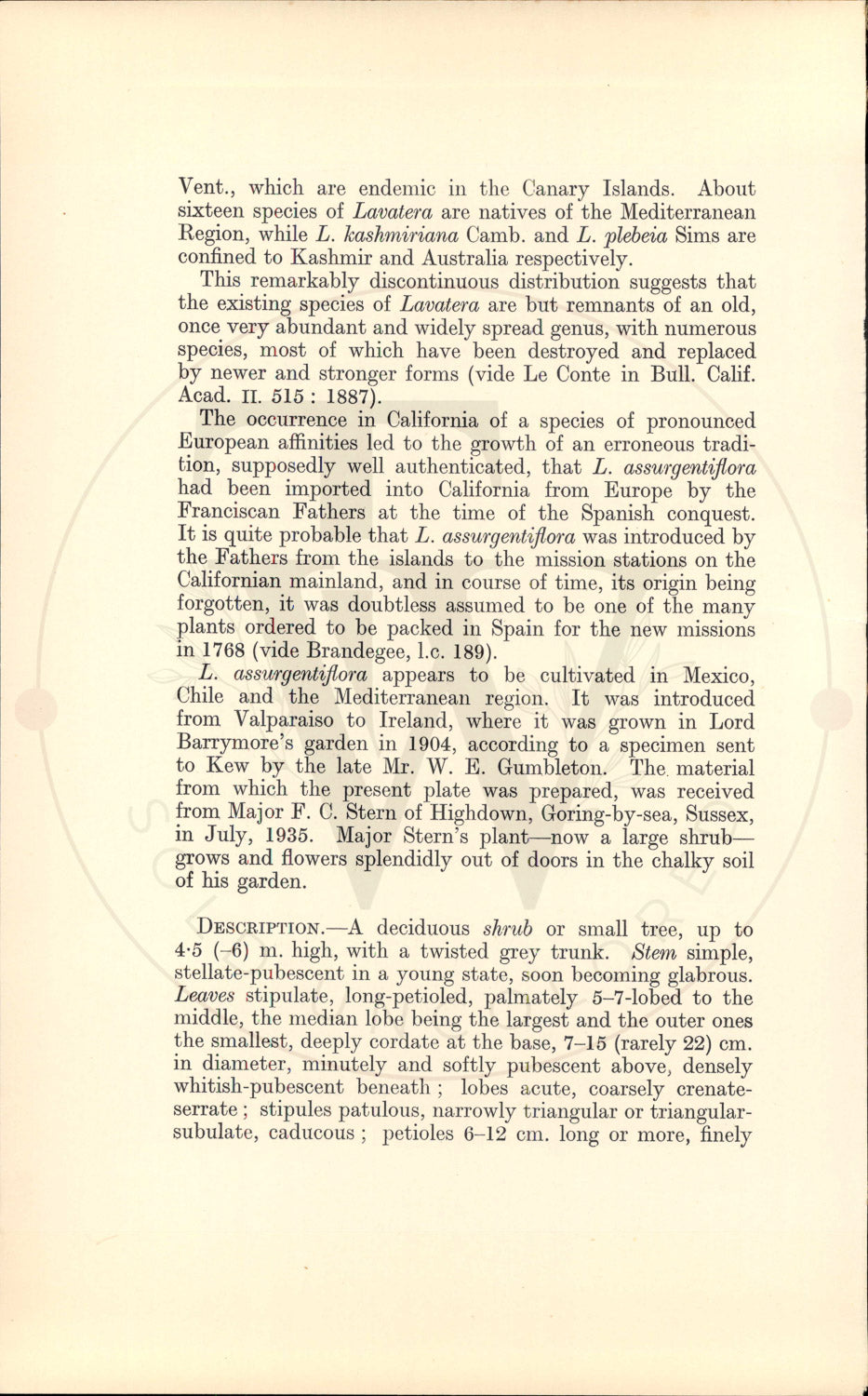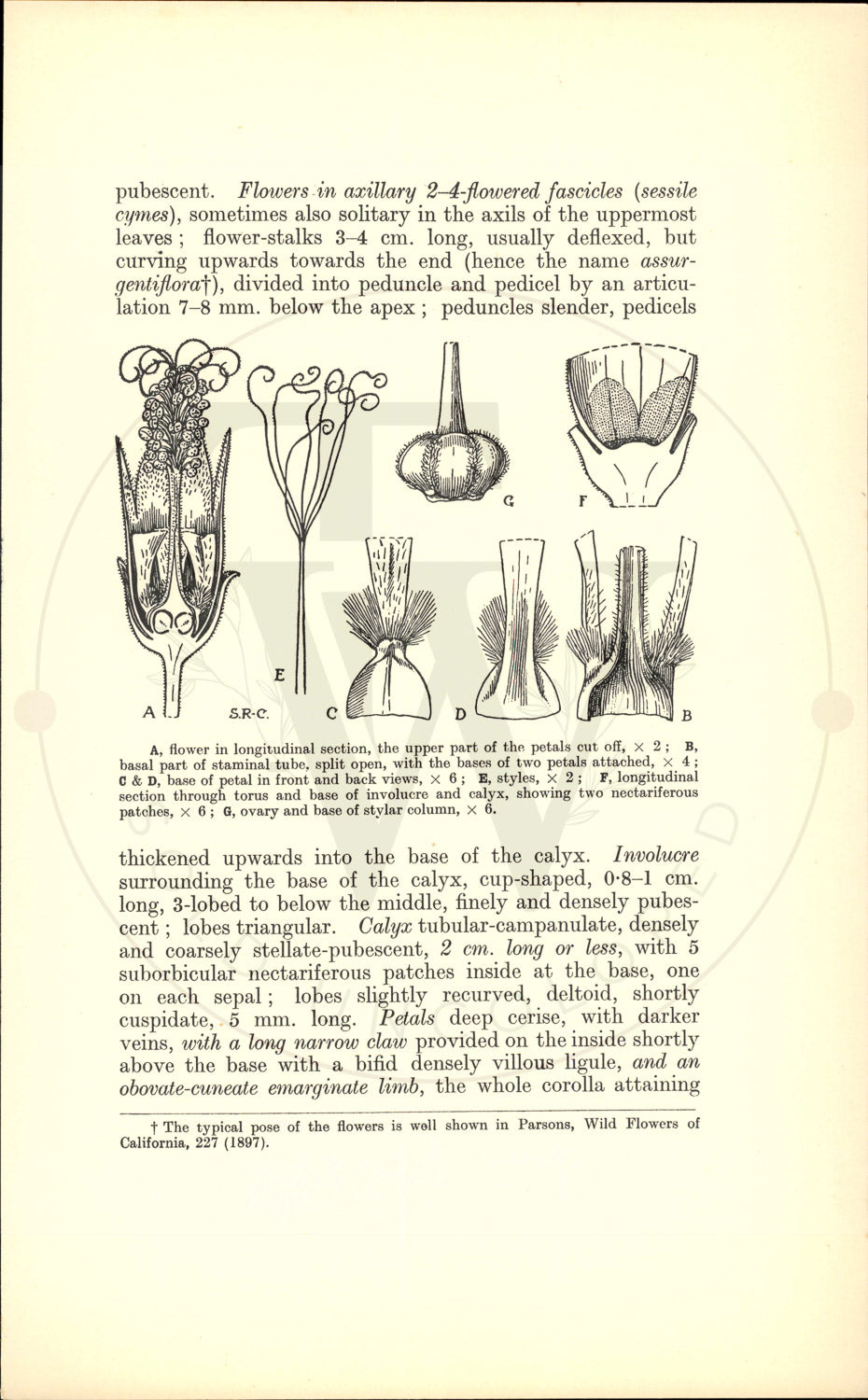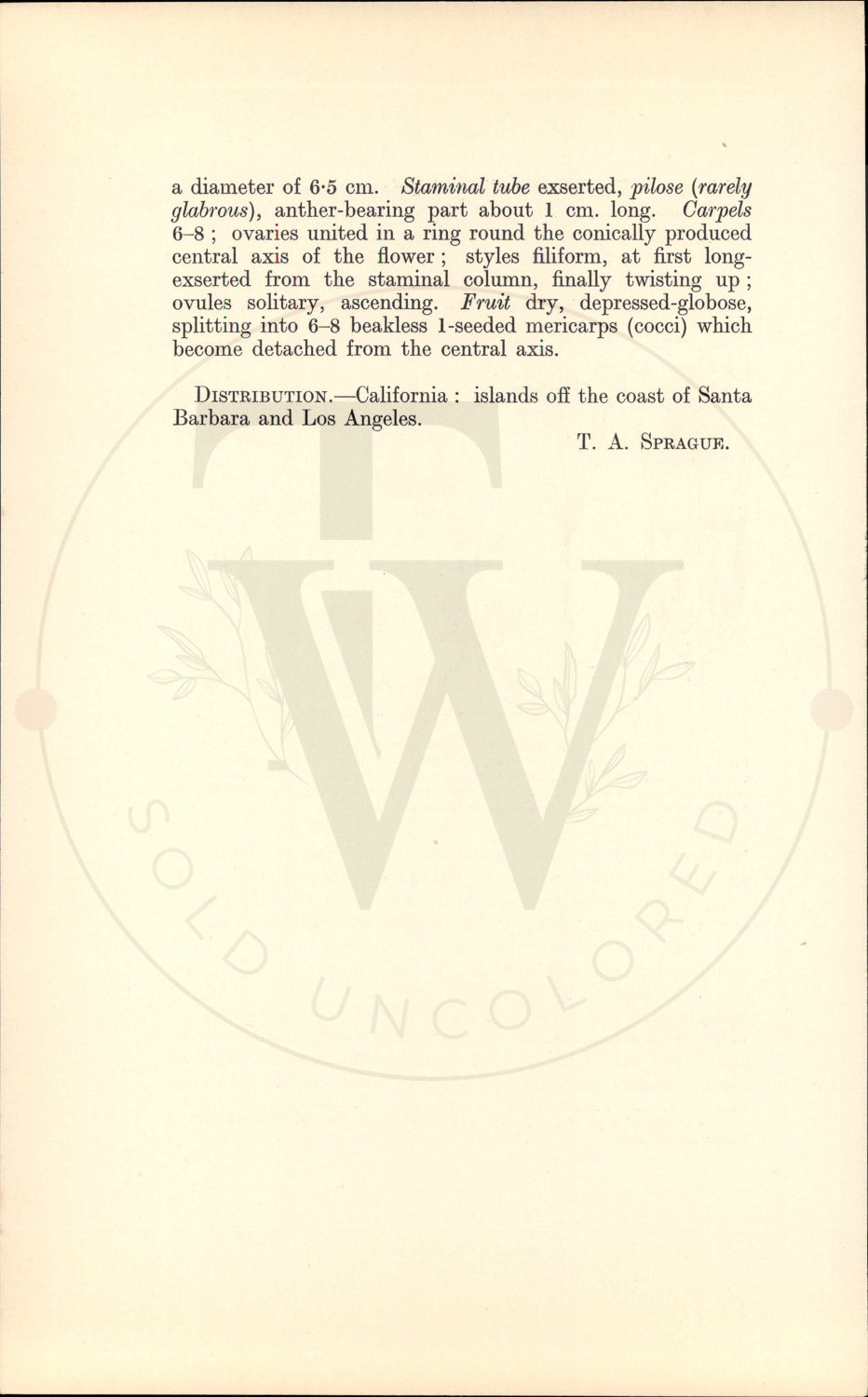Curtis Botanical Magazine
Plate 9450 - Lavatera assurgentiflora
Plate 9450 - Lavatera assurgentiflora
Couldn't load pickup availability
Curtis's Botanical Magazine - Plate 9450
Lavatera assurgentiflora
Native Region: Spain • Publication Date: January 1st, 1934
Distribution: suggests that • Tab Author: T. A. SPRAGUE
Botanical Description
Lavatera assurgentiflora was described in 1854 from plants cultivated on the Californian mainland and said to have been introduced from the island of Anacapa, off the coast of Santa Barbara, where it is no longer to be found. It has since been discovered, however, in the neighbouring islands of San Miguel and Santa Rosa and on various islets and rocks near Santa Cruz, as well as on Santa Catalina and San Clemente, to the south of Los Angeles.* According to Parish writing in 1890 (l.c.), L. assurgentiflora occupied, within the memory of living men, a large part of the island of Santa Catalina, yielding only to the overstocking of it with sheep and goats. It had then either disappeared or was on the verge of extinction on all the islands used for pas- turage, persisting only on the detached rocks and islets, which are out of the way of goats and sheep. Three species of Lavatera related to L. assurgentiflora are endemic in islands off the coast of Lower California, namely, L. insularis S. Wats. from the Coronados Islands near San Diego, L. occidentalis S. Wats. from Guadalupe Island, and L. venosa S. Wats. from San Benito. All four appear to be nearly related to L. acerifolia Cav. and L. phoenicea (Webb) * Four species segregated by the late E. L. Greene (Leaflets Bot. Obs. II. 160: 1911) namely Saviniona clementina (San Clemente), S. reticulata (Santa Catalina), S. dendro- idea (San Miguel) and S. suspensa (San Diego), are tacitly reduced to Lavatera assur- gentiflora by Jepson (l.c.).
Synonyms
Fl. N. Amer. I. i. 299 (1897)
(1897)
(1899)
189 (1912)
About This Print
Original black and white uncolored botanical print from Curtis's Botanical Magazine (established 1787). This 9000s series print is from unissued publisher stock, never hand-colored, representing the authentic plate as it appeared in the magazine. Edited by Sir Arthur William Hill for The Royal Horticultural Society, London.
Share
